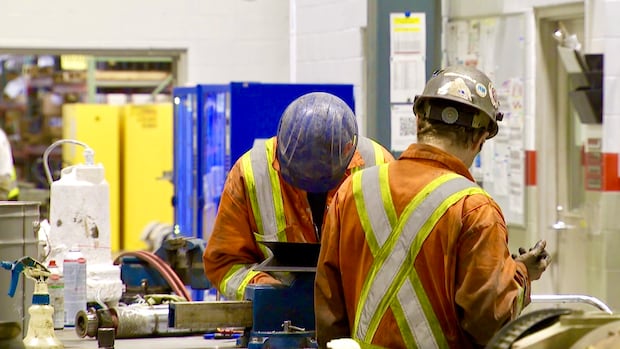Top Stories
Long Wait Times Jeopardize Canada’s Refugee Employment Program

The processing of applications for Canada’s Economic Mobility Pathways Pilot (EMPP) has drastically slowed, with wait times now extending up to 54 months for refugees overseas. Initially designed to match skilled refugees with Canadian employers facing labor shortages, the program’s delays are leaving both businesses and individuals in a precarious situation.
Launched in 2018, the EMPP aimed to facilitate the immigration of skilled refugees by offering permanent residency to those who received job offers from Canadian companies. Since its inception, over 1,200 refugees have successfully immigrated through the program. However, the promise of swift processing times, which were once reported to be around six months, has faltered significantly.
Dana Wagner, managing director of TalentLift Canada, expressed deep concern over the program’s current state. “It’s extremely frustrating knowing the value of this program and knowing the potential,” she stated. “Canada is no longer treating this applicant group like the skilled workers they are.” TalentLift, a Toronto-based non-profit, assists Canadian employers in hiring refugees when local candidates are unavailable.
The prolonged wait has created challenges for Canadian businesses that are unable to fill crucial positions. A recent survey by TalentLift revealed that many employers are experiencing production cuts, delayed expansion plans, and lost revenue due to the backlog. Simultaneously, refugees waiting to join the Canadian workforce face dire situations, including the threat of arrest, deportation, and economic hardship.
“These are really extreme situations playing out while people have a job offer in Canada waiting for them,” Wagner remarked. The irony is stark: skilled individuals are left in limbo despite having secured employment.
Compounding the issue, Finance Minister François-Philippe Champagne recently indicated that the government is aiming to achieve “more sustainable levels” of immigration. He acknowledged that Canada’s capacity to welcome newcomers has been tested. “On one hand, we’re saying, ‘Yes, we’re getting back to sustainable levels.’ On the other hand, we’re really focusing on attracting the best and brightest,” he stated during a news conference prior to the budget release.
Some of the positions that the EMPP is designed to fill include critical roles in health care, engineering, agriculture, and construction. However, the delays in processing times are prevalent. Currently, 80 percent of complete EMPP applications are processed in approximately 17 months, according to a spokesperson for Immigration, Refugees and Citizenship Canada (IRCC).
Mary Rose Sabater emphasized that various factors influence processing times, including immigration targets and the complexity of individual cases. “The government of Canada understands the significance of this pilot for refugees and displaced persons, and also for employers and Canadian communities,” she noted.
Public sentiment regarding immigration is shifting. According to a recent poll by the Environics Institute, 56 percent of Canadians believe the country is admitting too many immigrants, a marked increase over the last five years. This changing attitude reflects broader concerns about population growth straining housing, healthcare, and other public services.
As the EMPP faces these challenges, the future of skilled refugee employment in Canada hangs in the balance. The ongoing wait times not only hinder economic growth for businesses but also place immense pressure on vulnerable populations seeking stability and opportunity.
-

 Education3 months ago
Education3 months agoBrandon University’s Failed $5 Million Project Sparks Oversight Review
-

 Science4 months ago
Science4 months agoMicrosoft Confirms U.S. Law Overrules Canadian Data Sovereignty
-

 Lifestyle3 months ago
Lifestyle3 months agoWinnipeg Celebrates Culinary Creativity During Le Burger Week 2025
-

 Health4 months ago
Health4 months agoMontreal’s Groupe Marcelle Leads Canadian Cosmetic Industry Growth
-

 Science4 months ago
Science4 months agoTech Innovator Amandipp Singh Transforms Hiring for Disabled
-

 Technology4 months ago
Technology4 months agoDragon Ball: Sparking! Zero Launching on Switch and Switch 2 This November
-

 Education4 months ago
Education4 months agoRed River College Launches New Programs to Address Industry Needs
-

 Technology4 months ago
Technology4 months agoGoogle Pixel 10 Pro Fold Specs Unveiled Ahead of Launch
-

 Business3 months ago
Business3 months agoRocket Lab Reports Strong Q2 2025 Revenue Growth and Future Plans
-

 Technology2 months ago
Technology2 months agoDiscord Faces Serious Security Breach Affecting Millions
-

 Education4 months ago
Education4 months agoAlberta Teachers’ Strike: Potential Impacts on Students and Families
-

 Education3 months ago
Education3 months agoNew SĆIȺNEW̱ SṮEȽIṮḴEȽ Elementary Opens in Langford for 2025/2026 Year
-

 Science4 months ago
Science4 months agoChina’s Wukong Spacesuit Sets New Standard for AI in Space
-

 Technology4 months ago
Technology4 months agoWorld of Warcraft Players Buzz Over 19-Quest Bee Challenge
-

 Business4 months ago
Business4 months agoNew Estimates Reveal ChatGPT-5 Energy Use Could Soar
-

 Business4 months ago
Business4 months agoBNA Brewing to Open New Bowling Alley in Downtown Penticton
-

 Business4 months ago
Business4 months agoDawson City Residents Rally Around Buy Canadian Movement
-

 Technology2 months ago
Technology2 months agoHuawei MatePad 12X Redefines Tablet Experience for Professionals
-

 Technology4 months ago
Technology4 months agoFuture Entertainment Launches DDoD with Gameplay Trailer Showcase
-

 Technology4 months ago
Technology4 months agoGlobal Launch of Ragnarok M: Classic Set for September 3, 2025
-

 Technology4 months ago
Technology4 months agoInnovative 140W GaN Travel Adapter Combines Power and Convenience
-

 Top Stories3 months ago
Top Stories3 months agoBlue Jays Shift José Berríos to Bullpen Ahead of Playoffs
-

 Science4 months ago
Science4 months agoXi Labs Innovates with New AI Operating System Set for 2025 Launch
-

 Technology4 months ago
Technology4 months agoNew IDR01 Smart Ring Offers Advanced Sports Tracking for $169










